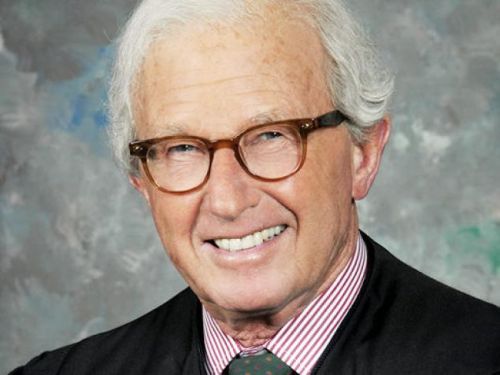BCF grants $110K to nonprofits
July 3, 2014NSU accreditation warning removed
July 3, 2014Judge Martin Leach-Cross Feldman took to the federal bench in 1983, following his nomination by President Ronald Reagan, and, since then, has continually presided in the Eastern District for Louisiana, out of a courtroom in New Orleans.
The veteran jurist turned heads last week when he told lawyers presenting cases in Louisiana court for and against recognition of same-sex marriages to bring on the whole enchilada.
Reversing his previous plans, Feldman said he wanted to decide on the matter of gay marriage altogether in one opinion rather than take the issue on piecemeal.
Attorneys are currently preparing briefs on the subject to meet a July deadline.
It wasn’t the first time Feldman has made headlines or controversy. His decisions on a drilling moratorium after the BP oil spill and on a suit between residents of a subdivision and its developer in a New Orleans suburb relating to the aftermath of Hurricane Katrina have gained much attention.
As one of the judges empowered by Article III of the U.S. Constitution, Feldman has a life term – if served in “good behavior” – and also serves on the U.S. Foreign Intelligence Surveillance Court.
A St. Louis native, Feldman graduated in 1955 from Tulane and was awarded his law degree there in 1957.
From that time through 1963, Feldman was a Reserve in the JAG Corps. He clerked for the Hon. John Minor Wisdom on the 5th Circuit U.S. Court of Appeals from 1957 through 1959, and then entered private practice in New Orleans until the Reagan appointment.
His term on the U.S. FISC ends in 2017.
Notable cases include Hornbeck Offshore Services LLC et al. v. Kenneth Lee Salazar et al., in which Feldman blocked the Obama administration’s 6-month moratorium on new deep-water drilling projects after the Deepwater Horizon oil spill, ruling that the Interior Department failed to provide adequate reasoning for the action.
A later analysis of Feldman’s investment portfolio showed that, in 2009, he held stock in companies affected by the ruling.
Feldman said he contacted his broker to have them sold the day after he learned of the conflict potential. Environmental organizations continued to press for Feldman to recuse himself, but he did not.
Feldman had ordered that the administration make decisions on five deep-sea drilling permits or face contempt of court. The Obama Administration lifted the moratorium and, so, did not appeal.
Feldman also drew attention when he dismissed a racketeering lawsuit filed by residents of a New Orleans area subdivision brought against the developer alleging that he had used money obtained for improvements after Hurricane Katrina for his own personal use rather than rebuilding the acreage.
The judge ruled that the residents had no standing to file the suit, and was upheld by the 5th Circuit U.S. Court of Appeal.








